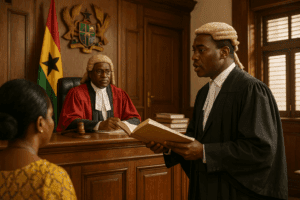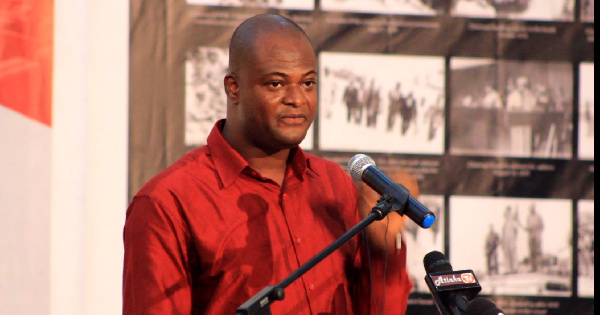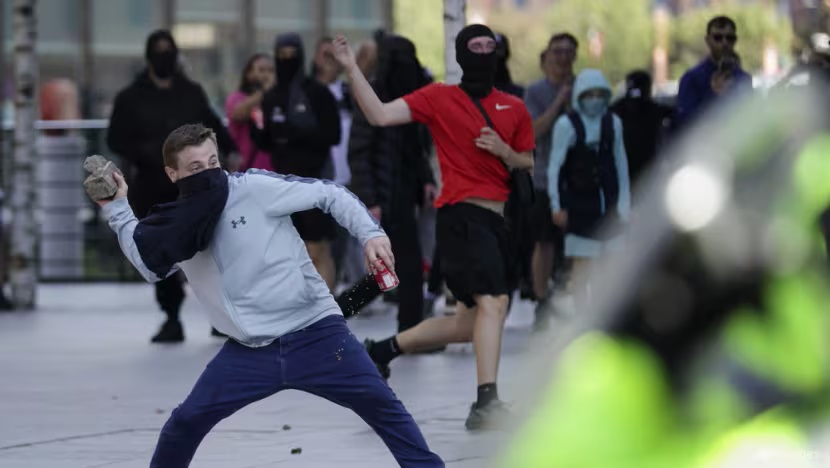
This is the 3rd Piece of a 4 part series.
Part 1 may be obtained here.
Part 2 may be obtained here
3.0 LAWYERS – PIVOTAL ELEMENT OF JUSTICE
If proverbs serve as the palm oil with which words are eaten, then lawyers function as the engines around which the wheel of justice revolves. Lawyers are essential to the administration of justice, fulfilling a multifaceted role that often positions them as intermediaries between court users and the courts or judges.
They perform a similar function in alternative dispute resolution mechanisms, such as arbitration, where they act as the liaison between the parties and the arbitration panel or sole arbitrator.
This role is codified in statute; under the Legal Profession (Professional Conduct and Etiquette Rules) 202 L.I. 2423, a lawyer assumes multiple responsibilities. They are an officer of the court, a legal representative of their client, and a public citizen with a special obligation to ensure the delivery of quality justice.

A Contributing Factor to Delays in Trial
While many lawyers diligently assist the courts in delivering justice expeditiously, I contend that part of the responsibility for prolonged delays in cases can be attributed to the conduct of certain lawyers.
The following paragraphs seek to elucidate some of the frequent acts that lawyers engage in to justify the need for adjournments and ultimately delays in trials.
Perception
Several years ago, I encountered a skit that humorously depicted the legal system, particularly the taking of dates. Regardless of the date suggested by the court, it invariably proved convenient for one lawyer but not for the other. This back-and-forth continued until a mutually agreeable date: one year later, was agreed upon.
While the skit may have exaggerated the situation, such scenarios occur in courts daily. There are instances when a convenient date for all parties is two months away from the present date.
Moreover, some lawyers fail to appear in court without notifying either the court or their clients, even when they had previously been present and agreed to the adjourned dates. It is not uncommon to hear a client state that their lawyer informed them, during a phone call, that they would attend court but ultimately did not appear.
“If The Court May Grant Us an Adjournment”
Many lawyers do appear in court conscientiously, punctually, smartly attired, and ready for business, but a few others habitually fail to appear and request adjournments for rather trivial reasons. Depending on the stage of the proceedings, the rules of procedure outline steps to be taken when a party and/or their counsel is absent.
Nonetheless, it has become customary that whenever one counsel appears in court and the other is absent, a request for an adjournment is made to the court as a matter of routine. There are occasions when lawyers express discontent when a court insists on proceeding with the day’s business in the absence of counsel for the other side.
Many judges are perplexed as to why a lawyer would don their robes merely to request a date. It cannot be assumed that this behavior is solely to collect “transportation fare” from their clients, as such conduct would violate the Legal Profession Act, which mandates that lawyers interact professionally with their clients and the courts.
Perhaps the answer may lie within this narrative. The frequently recounted narrative in legal education regarding a young lawyer who joined his father’s practice immediately after graduating from law school may serve as a pertinent illustration.
In this account, the young lawyer, filled with enthusiasm, hurried back to his father’s chambers to share the news of his first victory in court. However, the father took a moment to impart a “crucial” lesson.
He presented various briefs, indicating their significance: “This case financed your nursery school education, that one funded your school trip to America, this one covered your brother’s surgery, this case continues to support your sister’s medical school, and this one paid for your education from undergraduate studies through law school. Son, there is a reason these cases remained unresolved in court. It is not due to my inability to conclude them, but rather because they are financing essential obligations, including your education. If I were to resolve them prematurely, significant repercussions would ensue. Learn from my experience: the hallmark of an adept lawyer is not the swiftness with which he resolves cases, but rather the extent to which he derives benefit from each case.”

Unpreparedness for Court
In the context of daily court proceedings, there is little that is more commendable in the eyes of a judge than a lawyer who appears in court fully prepared, well-versed in their brief, and ready to engage in the legal process.
It is a remarkable sight when counsel skillfully articulates legal arguments and presents well-researched submissions to the court. Cross-examination becomes particularly compelling when a lawyer is thoroughly prepared and has meticulously analyzed the opposing party’s case, enabling them to effectively challenge the credibility of both the witness and the evidence presented.
This level of preparation is what the bench, the bar, and the spectators in the gallery anticipate when attending court; a lawyer who is both astute and well-prepared. However, a few lawyers appear in court inadequately prepared for their cases and, without hesitation, inquire about the business of the day when a case is called.
It is understandable that lawyers, particularly those in junior positions, may be overwhelmed by their caseloads and the daily rapid transitioning from one court to another.
However, this should not serve as justification for unprofessional behavior. Some lawyers may argue that they seek to ascertain whether the judge is prepared for the day. This argument lacks substantial merit. The established practice dictates that upon announcing their presence, a lawyer should promptly inform the court of the business for the day.
Moreover, it has become increasingly common for a lawyer to inform the court that they left their files behind. During my time in law school more than a decade ago, I was taught that it is a significant breach of professionalism for a lawyer to appear in court without their docket, and a lawyer should not be heard saying this in court.
It appears that there is a growing acceptance among some lawyers of this practice, as they confidently request adjournments on the grounds of not having their dockets available.
Too Many Briefs
A common sentiment among legal practitioners is that the bar must thrive. While I concur with this notion, it should not occur at the expense of justice. In pursuit of prosperity, some lawyers take on an excessive number of briefs.
In instances where these lawyers operate solo or within small firms, the demands of their caseloads often exceed their capacity, leading them to seek delays in proceedings through unwarranted adjournments.
A lawyer, in line with the best traditions of the bar, has an obligation to accept briefs that they can manage competently and dedicate sufficient professional time to.
Writing of Letters to the Court
One prevalent practice contributing to case delays is the tendency of lawyers to write letters to the court seeking adjournments. Certain lawyers believe that once they or a colleague submit such a request, the court is obligated to grant it.
Some prosecutors, upon receiving a copy of such correspondence, instruct their witnesses to leave, operating under the assumption that the court will inevitably adjourn the proceedings.
Regrettably, this belief is not aligned with established legal principles. The Supreme Court has repeatedly affirmed that the granting of adjournments lies within the discretion of the courts.
In the frequently cited case of The Republic v. High Court (Fast Track) Accra; Exparte Sian Goldfields Ltd [2009] SCGLR 294, the Supreme Court affirmed the principle that all adjournments are subject to the convenience of the court.
Furthermore, trial courts, in exercising their discretion, are not obliged to grant an adjournment solely based on the written request from counsel for one party, regardless of the stated grounds for such a request.
A Growing Specialization in Delaying Cases
An effective lawyer must possess a comprehensive understanding of the law while also developing strategic approaches for each case to achieve a favorable outcome.
Strategic planning is undeniably a critical attribute of a proficient lawyer. Beyond knowledge of legal principles and procedural regulations, various other factors can significantly influence the success of a case.
For instance, during cross-examination, the demeanor and tactics employed by opposing counsel can undermine the evidentiary groundwork established by the lawyer during evidence in chief.
If a witness becomes visibly unsettled due to aggressive questioning that targets their character or aims to provoke an emotional response, it can lead to a deterioration of their focus and potentially compromise the integrity of their testimony.
Thus, a lawyer must possess a comprehensive understanding of the case, as well as familiarity with the client and witnesses, while strategically planning by considering all pertinent factors.
With that being said, it appears that some lawyers seem to specialize in delaying cases. Anecdotes circulate about a lawyer who instructs their juniors to always dissuade clients from pleading guilty to offenses, no matter how watertight the case of prosecution is.
This is predicated on the belief that employing delaying tactics through a plea of not guilty may result in the accused never facing incarceration or punishment, even when incontrovertible evidence exists against them.
The rationale provided is that, during the course of proceedings, the prosecutor may not appear in court on certain days, leading to adjournments. Similarly, the lawyer may also fail to appear, and the accused may present various excuses for their absence, while the judge may also be unavailable.
Additionally, judges and prosecutors may be reassigned or even pass away, resulting in further delays as cases must commence de novo (prior to the decision in the Opuni Case regarding the adoption of criminal cases on a case-by-case basis). In essence, numerous strategies exist to delay proceedings, while a plea of guilty could jeopardize the accused’s interests.
Although this narrative may be fictional, it reflects a troubling reality: certain lawyers create reasonable inferences that their strategies are aimed at prolonging litigation rather than toward the end of justice.
Rather than adhering to professional ethics by advising clients candidly when they possess a weak case, these attorneys utilize creative methods to postpone justice.
A Lawyer Must Earn His Fees
Moreover, some lawyers appear to prioritize the principle of earning their fees, leading them to discourage clients from settling cases, even when there is a paucity of legal authorities indicating a poor case.
There are times that even when clients express a desire for settlement and the court encourages amicable resolution, such lawyers obstruct the process.
It is not uncommon for lawyers to appear in court after a scheduled settlement attempt, claiming that no effort was made because they were waiting for communication from opposing counsel.
Whether through the filing of spurious motions that go unserved for months (despite court bailiffs being responsible for service, many lawyers maintain informal relationships with bailiffs and may exploit this to their advantage, undermining the case) or by filing additional motions lacking merit immediately after one is dismissed, these attorneys clearly demonstrate a lack of interest in the case proceeding to resolution.
Even Unto ADR
This trend of “specialization” is not confined to courtroom scenarios; it extends to matters before tribunals or those resolved through Alternative Dispute Resolution (ADR).
For instance, even in instances where parties have agreed to arbitration intended to expedite dispute resolution, some lawyers file various motions in court during arbitration hearings, fully aware that such motions will result in a stay of the proceedings pending resolution of the filed motion.
In fairness to some lawyers, the justifications provided for such “delay tactics” often relate to concerns of perceived bias or prejudice from a judge, arbitration panel, sole arbitrator, mediator, or a neutral evaluator, which they may find challenging to substantiate as grounds for setting aside an agreement or arbitral award in the future.
3.1 Marching Forward
The Legal Profession Act delineates several provisions for sanctions that a lawyer may face for failing to adhere to professional standards. Notably, section 98 stipulates that a lawyer’s non-appearance in court after an agreed-upon date, without a reasonable excuse, constitutes a punishable act of professional misconduct.
An examination of the General Legal Council’s website reveals a list of misconduct complaints filed by clients and judges against lawyers, indicating that the regulatory framework is being actively enforced.
However, I strongly contend that the question of the appropriate path forward can best be addressed through consultations with practicing lawyers. Addressing this issue necessitates not only the imposition of penalties on errant lawyers but also a concerted effort to identify their challenges and develop strategies to address them.
In certain jurisdictions, lawyers have recognized the importance of maintaining a positive reputation and strive to ensure that both the court and their clients regard them with high esteem as professionals. They seem to understand that there are both social and legal ramifications associated with unethical practices or professional misconduct.
In Ghana, the Bar may need to confront the following question: Do lawyers who adhere to the rules and diligently fulfill their obligations to clients and the courts derive significant benefits from the legal system, or it is rather the lawyers who find “innovative ways” to circumvent the rules and ethical standards appear to reap the rewards of the legal system?
An exploration of this question may serve as a critical starting point for devising solutions to this issue and curtailing the troubling trend of lawyers specializing in case delays.
END



